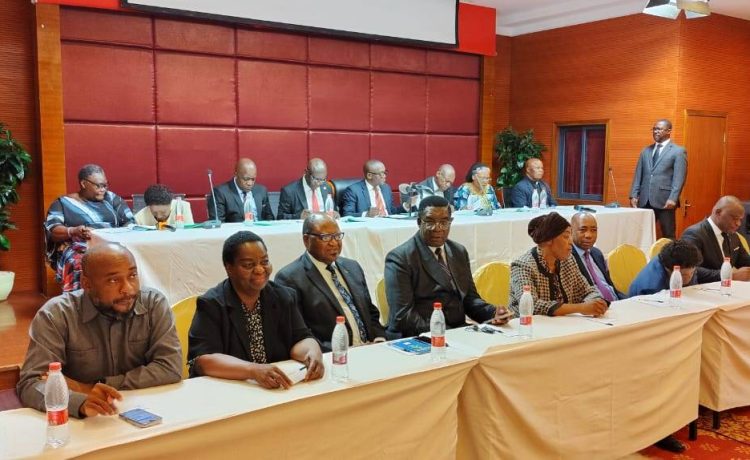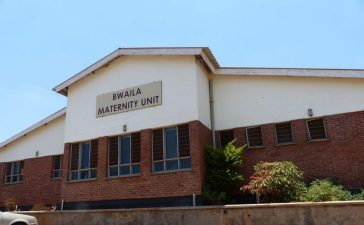The Commission of Inquiry into circumstances surrounding the plane crash that claimed the lives of the then state vice president, Dr. Saulos Klaus Chilima, and 8 others, delivered its findings yesterday. What sets this Commission apart is not just its establishment, but President Chakwera’s unprecedented directive that the findings be publicly presented before they are submitted to him.
This move speaks volumes about the President’s unwavering commitment to transparency and the principle that the people deserve to know the undiluted truth. By allowing the commission to deliver its findings directly to the public, the President has taken a bold step away from the age-old tradition of politicizing investigations and withholding information, a practice that has often eroded public trust in such inquiries.
However, some elements of the opposition have expressed frustrations, indicating that they have been robbed of their narrative arsenal as they have weaponized Chilima’s death with conspiracy theories accusing the ruling Malawi Congress Party of orchestrating the death. Some notable opposition elements who have expressed displeasure with the mode of delivery include the US-based Democratic Progressive Party member Cedrick Ngalande who wrote the following: “So repetitive. What they should have done is to come there and read their findings. The document should be handed to the President, the press, and also posted online. Nowhere in the world do people release a report like this by reading the whole document”.
Another DPP diehard, who was the chairman of the organizing committee of this year’s Mulhakho wa Alhomwe cultural festival, professor Felix Tambulasi, could not find specific fault of the report or its delivery and proceeded to just write: “rubbish” on his Facebook wall.
The revelations that followed the commission’s inquiry have shuttered the conspiracy valves and disarmed the opposition who have leveraged the death of the former vice president for unwarranted political mileage. The findings have exposed systemic failures and negligence, detailing how the office of the Vice President itself bypassed the President in procuring the ill-fated plane. While the President did everything humanely possible to sustain a good relationship with his vice president including delegating him to represent the country in international discussion proceedings, the inquiry has disclosed that upon his arrival from a delegated errand to South Korea, Chilima did not report his homecoming to the President and proceeded to seek military aircraft behind the president’s back.
This level of the Commission’s transparency unveils not just the operational lapses but also the accountability that those in power must bear. As society grapples with the ramifications of this tragedy, it is imperative that those implicated—whether through administrative negligence, civil recklessness, or potential criminal conduct—are held to account for their actions.
Following the plane crash, thanks to the opposition’s appetite to gain political mileage, the political landscape in Malawi has seen a surge of narratives aimed at blaming the government for perceived negligence in the aftermath of the crash. However, the release of the commission’s findings has begun to dismantle these narratives, confronting opposition leaders with the uncomfortable truths that challenge their versions of events. It highlights the need for political discourse to be rooted in facts rather than sensationalism—a shift that can only serve to strengthen our democracy.
Moreover, it is crucial that the implications of the findings extend beyond mere acknowledgment of fault. The President must ensure that administrative actions are taken against those implicated, thereby reinforcing the message that negligence—at any level of government—will not be tolerated. Whether this entails suspensions, removals, or even criminal proceedings, it is essential for restoring public faith in our institutions and for paving the way for a culture of accountability.
The public must also be granted the opportunity to remain engaged in this process. The President’s decision to allow the commission to present its findings openly sets a precedent for future inquiries, illustrating that transparency is not merely an option but a necessity. This approach invites Malawians into the conversation surrounding governance and justice, fostering an environment where they can advocate for their rights and demand answers.
In conclusion, President Chakwera’s establishment of an independent commission of inquiry, along with his public commitment to transparency, stands as a pivotal moment in Malawi’s pursuit of justice. As we move forward, let us collectively hold our leaders accountable and ensure that the lessons from this tragedy lead to meaningful reforms. The road ahead may be challenging, but with steadfast commitment to transparency and accountability, we can rebuild trust in our democratic institutions and begin to heal the wounds of a nation still coming to terms with its loss.













